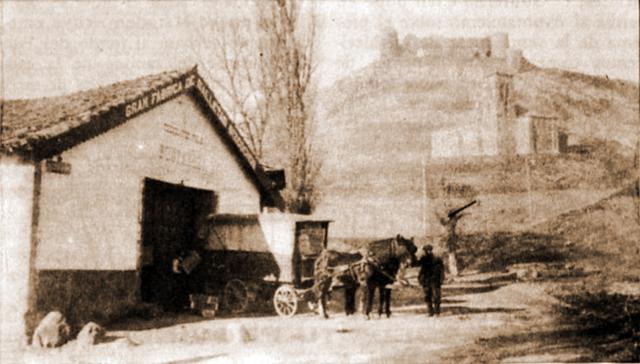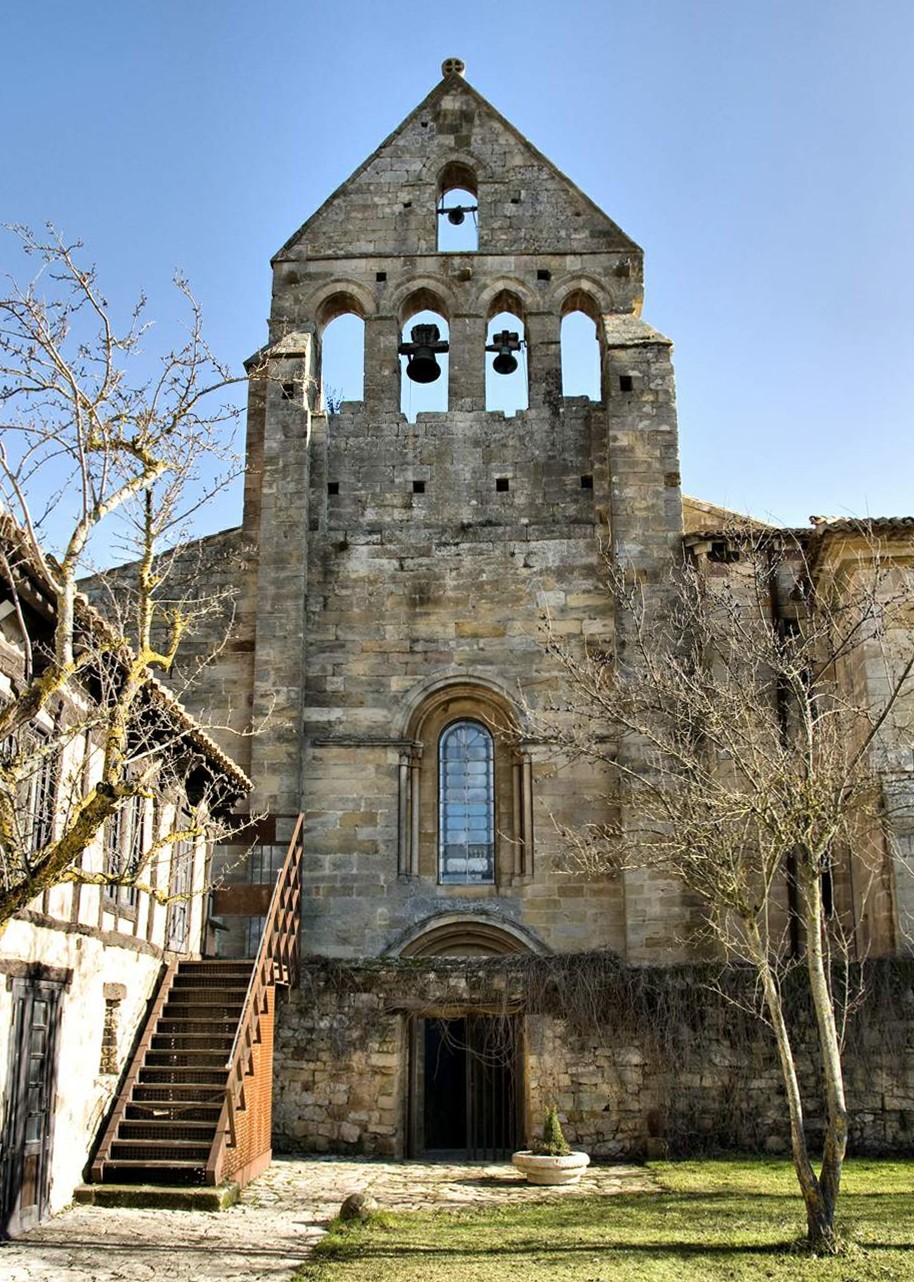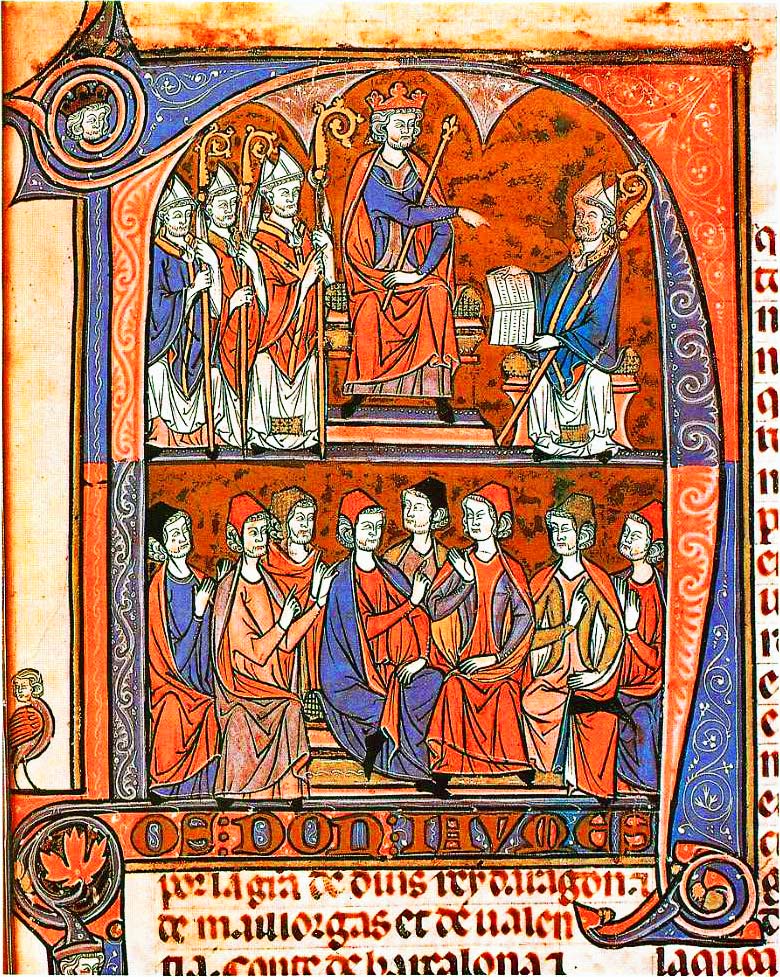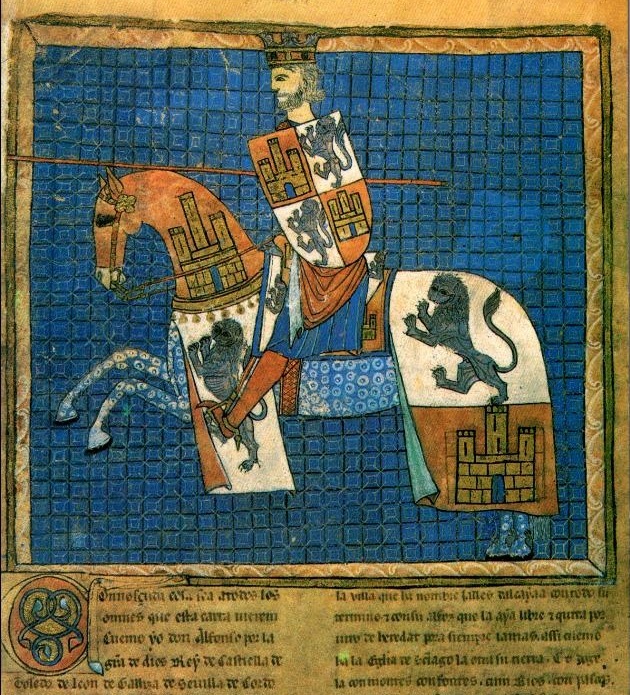|
Aguilar De Campoo
Aguilar de Campoo () is a town and municipality of Spain located in the province of Palencia, autonomous community of Castile and León. It is close to the River Pisuerga. Its 2011 population is 7741. It is one of the locations of the St. James' Northern Way (Ruta del Besaya). Since 2017, the municipality has been included in the Geopark of Las Loras, the first UNESCO Geopark in Castile and León. History In May 1255 Alfonso X the Wise granted Aguilar a royal fuero, and thus the town also became a ''realengo'' ('royal demesne'). The town maintained that status until 1332. The town featured a seizeable Jewish community in the middle ages. Gullón and Fontaneda opened biscuit factories in 1904 and 1913, respectively, and the town acquired a reputation as a renowned biscuit-making centre in Spain in the 20th century. Main sights Religious architecture * Monastery of Santa María la Real (11th-13th centuries) *Collegiate Church of San Miguel (11th-16th centuries) *Church of Oller ... [...More Info...] [...Related Items...] OR: [Wikipedia] [Google] [Baidu] |
Municipalities Of Spain
The municipality ( es, municipio, , ca, municipi, gl, concello, eu, udalerria, ast, conceyu)In other languages of Spain: * Catalan/Valencian (), sing. ''municipi''. * Galician () or (), sing. ''municipio''/''bisbarra''. *Basque (), sing. ''udalerria''. * Asturian (), sing. ''conceyu''. is the basic local administrative division in Spain together with the province. Organisation Each municipality forms part of a province which in turn forms part or the whole of an autonomous community (17 in total plus Ceuta and Melilla): some autonomous communities also group municipalities into entities known as ''comarcas'' (districts) or ''mancomunidades'' (commonwealths). There are a total of 8,131 municipalities in Spain, including the autonomous cities of Ceuta and Melilla. In the Principality of Asturias, municipalities are officially named ''concejos'' (councils). The average population of a municipality is about 5,300, but this figure masks a huge range: the most populo ... [...More Info...] [...Related Items...] OR: [Wikipedia] [Google] [Baidu] |
Camino De Santiago
The Camino de Santiago ( la, Peregrinatio Compostellana, "Pilgrimage of Compostela"; gl, O Camiño de Santiago), known in English as the Way of St James, is a network of pilgrims' ways or pilgrimages leading to the shrine of the apostle Saint James the Great in the cathedral of Santiago de Compostela in Galicia in northwestern Spain, where tradition holds that the remains of the apostle are buried. As Pope Benedict XVI said, "It is a way sown with so many demonstrations of fervour, repentance, hospitality, art and culture which speak to us eloquently of the spiritual roots of the Old Continent." Many follow its routes as a form of spiritual path or retreat for their spiritual growth. It is also popular with hiking and cycling enthusiasts and organized tour groups. Created and established after the discovery of the relics of Saint James the Great at the beginning of the 9th century, the Way of St James became a major pilgrimage route of medieval Christianity from the 10th cent ... [...More Info...] [...Related Items...] OR: [Wikipedia] [Google] [Baidu] |
Galletas Gullón
Galletas Gullón ( en, Gullón Cookies) is a Spanish food sector company dedicated to the manufacture of crackers and biscuits. Founded in 1892, in Aguilar de Campoo in the province of Palencia surrounded by wheat fields, Gullón has been the leading producer of biscuits in Spain. In 2009, it had an annual production of 102 million kg and a turnover of 163 million euros. and in 2014 with a turnover of 286.6 million euros.GullóGULLÓN OPENS ITS NEW INDUSTRIAL PLANT VIDA2015, accessed 20 July 2018 Gullón has two production factories; in Aguilar de Campoo, the second ''Gullón II'', located next to the Cantabria-Meseta motorway and opened in 2003, covers an area of 100,000 m2, and is the largest biscuit factory in Europe.RTVE Gullón se enzarza en la guerra de las galletas� Retrieved September 29, 2010. Gullon’s CEO and Managing Director since 1983 has been María Teresa Rodríguez Sainz-Rozas, who defends the profit reinvestment policy and allocates almost 2% of turn ... [...More Info...] [...Related Items...] OR: [Wikipedia] [Google] [Baidu] |
Aguilar De Campoo - Colegiata De San Miguel Arcángel 9
Aguilar may refer to: People *Aguilar (surname) Places * Aguilar, Colorado, town in Las Animas County, Colorado, USA *Aguilar, Pangasinan, municipality in the province of Pangasinan, Philippines *Cape D'Aguilar, cape on Hong Kong Island *D'Aguilar National Park, national park in Queensland, Australia Spain *Aguilar de Bureba, municipality and town in the province of Burgos, Castile and León * Aguilar de Campoo, town in the province of Palencia, Castile and León *Aguilar de Campos, municipality located in the province of Valladolid, Castile and León *Aguilar de Codés, town and municipality in Navarre * Aguilar de la Frontera, municipality and town in the province of Córdoba, Andalusia *Aguilar de Segarra, municipality in the province of Barcelona, Catalonia *Aguilar del Alfambra, municipality in the province of Teruel, Aragon *Aguilar del Río Alhama, municipality in La Rioja Other * – condemned 1825 *Château d'Aguilar, a Cathar castle in the Aude département, France *F� ... [...More Info...] [...Related Items...] OR: [Wikipedia] [Google] [Baidu] |
Aguilar De Campoo - Colegiata De San Miguel Arcángel 6
Aguilar may refer to: People *Aguilar (surname) Places * Aguilar, Colorado, town in Las Animas County, Colorado, USA *Aguilar, Pangasinan, municipality in the province of Pangasinan, Philippines *Cape D'Aguilar, cape on Hong Kong Island *D'Aguilar National Park, national park in Queensland, Australia Spain *Aguilar de Bureba, municipality and town in the province of Burgos, Castile and León * Aguilar de Campoo, town in the province of Palencia, Castile and León *Aguilar de Campos, municipality located in the province of Valladolid, Castile and León *Aguilar de Codés, town and municipality in Navarre * Aguilar de la Frontera, municipality and town in the province of Córdoba, Andalusia *Aguilar de Segarra, municipality in the province of Barcelona, Catalonia *Aguilar del Alfambra, municipality in the province of Teruel, Aragon *Aguilar del Río Alhama, municipality in La Rioja Other * – condemned 1825 *Château d'Aguilar, a Cathar castle in the Aude département, France *F� ... [...More Info...] [...Related Items...] OR: [Wikipedia] [Google] [Baidu] |
Collegiate Church Of San Miguel
Collegiate may refer to: * College * Webster's Dictionary, a dictionary with editions referred to as a "Collegiate" * ''Collegiate'' (1926 film), 1926 American silent film directed by Del Andrews * ''Collegiate'' (1936 film), 1936 American musical film directed by Ralph Murphy * "Collegiate" (song), song by Moe Jaffe and Nat Bonx See also * Collegiate athletics, athletic competition organized by colleges and universities * Collegiate church, a church where the daily office of worship is maintained by a college of canons * Collegiate School (other) * Collegiate institute, a Canadian school of secondary or higher education * Collegiate university * St Michael's Collegiate School , motto_translation = For the Church of God la, Beati Mundo Corde(Blessed are the Pure in Heart) , established = , type = Independent early learning, primary and secondary day and boarding school , ..., Hobart, Australia * Collegiate Gothic, an ... [...More Info...] [...Related Items...] OR: [Wikipedia] [Google] [Baidu] |
Monastery Of Santa María La Real (Palencia)
Santa María la Real is a monastery in Aguilar de Campoo, province of Palencia, Spain. Santa María la Real is a common name for monasteries in Spain, and indicates a royal connection, in this case to King Alfonso VIII of Castile. From the 12th century the monastery was the home of a Premonstratensian community. The architecture is in a transitional style between Romanesque and Gothic. Conservation The monastery was closed in the 19th century as a result of the Ecclesiastical Confiscations of Mendizábal. The buildings fell into ruin and in 1871 various capitals (dated ''circa'' 1200) were removed to the National Archaeological Museum, Madrid. In 1914 the monastery was declared a national monument A national monument is a monument constructed in order to commemorate something of importance to national heritage, such as a country's founding, independence, war, or the life and death of a historical figure. The term may also refer to a spec .... The restored buildings tod ... [...More Info...] [...Related Items...] OR: [Wikipedia] [Google] [Baidu] |
Biscuit
A biscuit is a flour-based baked and shaped food product. In most countries biscuits are typically hard, flat, and unleavened. They are usually sweet and may be made with sugar, chocolate, icing, jam, ginger, or cinnamon. They can also be savoury, similar to crackers. Types of biscuit include sandwich biscuits, digestive biscuits, ginger biscuits, shortbread biscuits, chocolate chip cookies, chocolate-coated marshmallow treats, Anzac biscuits, '' biscotti'', and ''speculaas''. In most of North America, nearly all hard sweet biscuits are called " cookies", while the term " biscuit" is used for a soft, leavened quick bread similar to a less sweet version of a ''scone''. "Biscuit" may also refer to hard flour-based baked animal feed, as with dog biscuit. Variations in meaning * In most of the world outside North America, a biscuit is a small baked product that would be called either a " cookie" or a " cracker" in the United States and sometimes in Canada. Biscuits in th ... [...More Info...] [...Related Items...] OR: [Wikipedia] [Google] [Baidu] |
El Norte De Castilla
''El Norte de Castilla'' ("The North of Castile") is a Spanish-language daily newspaper based in Valladolid, Spain. After ''Faro de Vigo'', founded in 1853, ''El Norte de Castilla'' is one of the oldest daily newspapers in the country, tracing its origins to 1854. The main edition is published in Valladolid, but editions are published for Palencia, Salamanca, and Segovia. The paper has a widely accessed Spanish-language website and is considered to be the most reliable and influential periodical in Castile. History The newspaper can be traced to 1854, when Mariano Pérez Mínguez and Pascual Pastor created '' El Avisador'' ("The Reminder"). In 1856, this paper merged with a local competitor, '' El Correo de Castilla'' ("The Castile Courier"). ''El Norte de Castilla'' was established in April 1856 by the amalgamation of these two papers; the first issue of the newly formed paper was published on 17 October 1856. In 1870, the paper was acquired by Gaviria and Zapatero, and was sold ... [...More Info...] [...Related Items...] OR: [Wikipedia] [Google] [Baidu] |
Fuero
(), (), () or () is a Spanish legal term and concept. The word comes from Latin , an open space used as a market, tribunal and meeting place. The same Latin root is the origin of the French terms and , and the Portuguese terms and ; all of these words have related, but somewhat different meanings. The Spanish term has a wide range of meanings, depending upon its context. It has meant a compilation of laws, especially a local or regional one; a set of laws specific to an identified class or estate (for example , comparable to a military code of justice, or , specific to the Roman Catholic Church). In many of these senses, its equivalent in medieval England would be the custumal. In the 20th century, Francisco Franco's regime used the term for several of the fundamental laws. The term implied these were not constitutions subject to debate and change by a sovereign people, but orders from the only legitimate source of authority, as in feudal times. Characteristics ' ... [...More Info...] [...Related Items...] OR: [Wikipedia] [Google] [Baidu] |
Alfonso X The Wise
Alfonso X (also known as the Wise, es, el Sabio; 23 November 1221 – 4 April 1284) was King of Castile, León and Galicia from 30 May 1252 until his death in 1284. During the election of 1257, a dissident faction chose him to be king of Germany on 1 April. He renounced his claim to Germany in 1275, and in creating an alliance with the Kingdom of England in 1254, his claim on the Duchy of Gascony as well. Alfonso X fostered the development of a cosmopolitan court that encouraged learning. Jews, Muslims, and Christians were encouraged to have prominent roles in his court. As a result of his encouraging the translation of works from Arabic and Latin into the vernacular of Castile, many intellectual changes took place, including the encouragement of the use of Castilian as a primary language of higher learning, science, and law. Alfonso was a prolific author of Galician poetry, such as the ''Cantigas de Santa Maria'', which are equally notable for their musical content as for ... [...More Info...] [...Related Items...] OR: [Wikipedia] [Google] [Baidu] |

.jpg)



